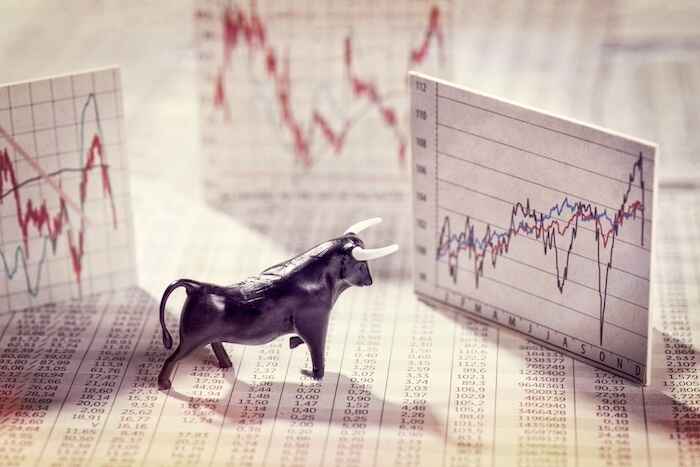A new Oxford Club Member sent me a note this week. He sounded perplexed.
“When I look at your Trading Portfolio, your Ten-Baggers of Tomorrow Portfolio and your All-Star Portfolio in The Oxford Communiqué, not only is virtually every position profitable but you’re sitting on literally dozens of double- and triple-digit gains. How did you get it right when so many analysts got it wrong?”
The answer is because we’re not economic forecasters or market timers.
Many of those who are – including some famous names – completely missed this bull market. And they have only themselves to blame.
For example, in mid-2022, JPMorgan CEO Jamie Dimon warned that a “hurricane” was about to hit the U.S. economy.
“You better brace yourself,” he added.
Last year, Bridgewater Associates founder Ray Dalio doubled down on that prediction, anticipating a “perfect storm” of economic pain.
High-profile economists Jeffrey Gundlach of DoubleLine and David Rosenberg of Rosenberg Research were just as fearful.
Both publicly predicted that a severe recession lay just ahead.
They were dead wrong, underestimating the impact of economic stimulus, the resilience of the American consumer, the strength of the U.S. economy and the upside of higher interest rates.
(Most Americans locked in low rates a few years ago on their mortgages and personal loans and are now earning higher yields on their bonds and money markets, delivering a net positive impact so far from the Fed’s rate increases.)
A rising stock market also increases consumer confidence as a so-called “wealth effect” kicks in.
How did so many smart people get the market so wrong? It wasn’t that they thought they knew things that they didn’t know.
It was that they thought they knew things that they couldn’t know.
In the past, for instance, surging interest rates often preceded recessions.
So did an inverted yield curve – which we had (and still have) – where short-term rates are higher than long-term rates.
But here’s an important caveat: just because something has often happened in the past, it doesn’t mean it will happen in the future.
If it did, we could just let computer algorithms run our portfolios based on historic correlations.
Many have tried this, in fact. Why haven’t you heard about them?
Because the financial media doesn’t spend much time covering investment failures. (Unless it’s fraud or a prominent manager’s fall from grace.) Rather they carry stories about investment successes.
And, make no mistake, no one succeeds over the long haul with a market timing approach.
Sure, anyone can make an occasional good call.
But as Vanguard Founder Jack Bogle famously said about market timing, “I don’t know of anybody who has done it successfully and consistently. I don’t even know anybody who knows anybody who has done it successfully and consistently.”
Some analysts will tell you that they indeed did call this rip-roaring bull market that has taken the Dow, the S&P 500, the Nasdaq and the small-cap Russell 2000 to new all-time highs.
But hold your applause. They still guessed about the market. And while they may have been right this time, what about next time?
By contrast, we invested in various companies because we saw rising sales, improving earnings, increasing market share and well-protected profit margins.
It’s a bottom-up rather than a top-down approach, a strategy that holds up well during down markets and outperforms in up markets.
Understand that investors who got the economy and the market wrong didn’t just make a bad call.
They put themselves between a rock and a hard place.
How?
For starters, they missed much of the 46% rise in the market since the October 2022 low – and considerably bigger gains in many individual stocks.
But that’s only the beginning of their problem. They still face a difficult dilemma.
Having missed the upside in the market, should they now get back into stocks and take the risk of enduring a correction or a full-fledged bear market?
Or should they avoid that risk and stay on the sidelines, thereby possibly missing even more bull market gains?
Every market timer faces this dilemma eventually. Yet few seem to anticipate it.
Most are too busy congratulating themselves for being smart and avoiding the upcoming bear market.
The one they imagined but never appeared.
In sum, The Oxford Club got things right not by fearing a bear market or predicting a bull market but by realizing that we couldn’t know what lay just ahead for the market.
It’s not that we guessed right. It’s that we didn’t guess at all.
And now we’re sitting on a mountain of gains.
